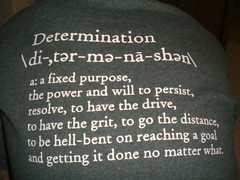Parents – career education should start in primary school.
 Research is showing that parents are keen for their children to receive career education in primary school and that learning about careers is proving beneficial to children as young as 6 years of age.
Research is showing that parents are keen for their children to receive career education in primary school and that learning about careers is proving beneficial to children as young as 6 years of age.
My immediate thought, when I heard about this, was that Mattel has got it right in creating their new range of Career Barbie dolls! It also reminded me of an activity conducted in Victoria using dolls, where a group of 8 year-old children, in a class activity, dressed their female and male dolls according to career stereotypes and then were asked whether they would like to meet some real professional working people. The majority of the adults who then entered the classroom were female and they were wearing the uniforms of professionals who have traditionally been male; engineers, firefighters etc. What was so compelling about the exercise was that the children gasped with excitement and then happily re-dressed their dolls.
At a recent conference of the Career Development Association of Australia, in Canberra, I heard from Ed Hidalgo, the Chief Innovation and Engagement Officer at World of Work, who described the fabulous careers teaching that is taking place junior schools in Cajon Valley, Southern California.
Ed Hidalgo does not come from a teaching, or education background but, like myself, has diverse experience in business and recruitment. His passion is in educating children and data from a 2016 Gallup pole showing that two-thirds of students are disengaged, was a profound motivator for the likes of Ed Hidalgo, and so many of us working with children and young adult students, to do something about it.
Ed’s work pays particular attention to the Holland Occupational Preferences, or the RIASEC codes, therefore a brief explanation of RIASEC is needed here.
John Holland devised the theory of occupational types in the 1970s using the prior research and theories of John Kellogg Strong. Holland’s research found that there are 6 personality types that intersect to create the occupational code of an individual. These taken verbatim from the 1972 journal article, were:
- Realistic – Machinists, tool and die makers, vocational agriculture teachers.
- Investigative – Physicists, chemists and psychologists.
- Artistic – Actors, artists, and interior decorators.
- Social – YMCA staff members, ministers, guidance counselors.
- Enterprising – Salesmen, department store managers, and buyers.
- Conventional – Bankers, business education teachers, and office workers.
Clearly, as years have passed, these early career theories have been revised and updated, as have job titles of course, so that career coaches are able to continue to use the models in our work.
At the Cajon Valley schools, junior school-age students are asked which of 6 drawn characters they would like to spend time with. They are then asked why they think they would enjoy the company of, say Artistic Adam, or Social Sophie. It then opens up discussion about their interests, strengths and values. This journey of self-awareness is crucial to a child’s feelings of self-efficacy and worth.
Parents are an integral part of the program in this case and it is clear that parents are keen for their children to be introduced to career education in their primary school years. For example, in a 2017 report by Canadian researchers it was found that:
- 77.7% of parents believed that children should learn about the world of work at preschool and primary school.
- 96.6% of parents believed that children should learn about workers in their communities.
- 70.4% of parents believed that children learn early what they are good at and not so good at.
Career theorists, Flum and Blustein, see the process of career development in the early years as a process of helping a child discover who they are, arguing that; “the core outcome is self-construction… the process of developing a coherent and meaningful identity and implementing that identity in a life plan.”
So, based on what I have seen and learnt, I intend to build workshops for parents into my private practice. They will learn about the occupational codes, or RIASEC, themselves and how the program might be delivered in small groups to children. This could then be set up as a school holiday activity. I feel that by educating parents about career development, a good level of trust in the process will be gained and they will see how much fun their primary school-age children can have in a play-based structured career education activity.
- Please contact me so that I can commence planning for a 2020 launch of Parent Career Development Workshops – Primary Years.
- One free 1.5 hour session with parents, delivered in Bayside, Victoria, followed by a survey of participants, as to the best time and day for the first student session to be held.
- Expressions of interest can be sent to [email protected]
Similar articles

“There is nothing Clever about not being Happy” Arnaud Desjardins
That’s a pretty bold statement, Monsieur Some Gardens! I found the quote in a gorgeous book, Buddhist Offerings 365 Days, Edited by Danielle and Olivier Follmi, and published by Thames and Hudson. Alongside of each days’ quote is a stunning photograph, and against this particular quote is a photo of a horse lying on its […]

“Where there’s a Will, there’s a Way”
I heard myself saying this to a despondent young man the other day, and wondered how helpful I was being. Oh dear, questioning my own tips might be a troublesome habit, however it does serve to galvanise me into action to check on my sources and ponder the idiom.

20th March is International Day of Happiness
“Each individual is master of his or her destiny: it is up to each person to create the causes of happiness” The 14th Dalai Lama 20th March is International Day of Happiness What a pity we need special days and coffee table books with images of smiling faces to nudge us into a happiness […]
